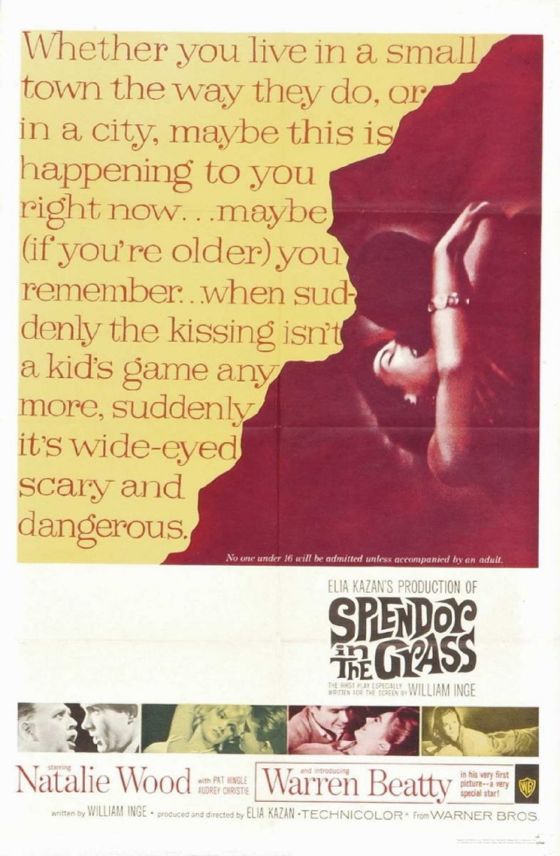
I'm working my way through the big DVD box set of Elia Kazan's films, and also through his autobiography. In both, I'm up to Splendor In the Grass. In his book, Kazan doesn't have a lot to say about the making of the film, beyond reporting the gossipy stuff, as he always does — he was cheating on his wife with the film's second lead Barbara Loden, Natalie Wood was cheating on her husband Robert Wagner with Warren Beatty. Yawn.
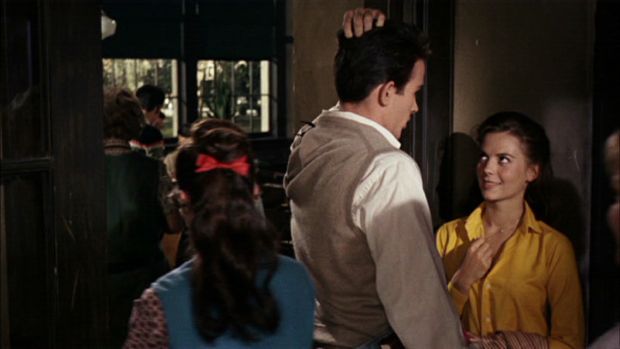
What he does say about William Inge's original screenplay, though, is fascinating. “His story had the one essential, an excellent flow of incident to a true conclusion.” He says that the film was easy to direct — “the scenes Bill wrote were the simplest I'd ever done. People came together, spoke to each other, a point was made, an issue decided, quietly and meaningfully. Then they parted and the story went on. That was Bill's talent.”
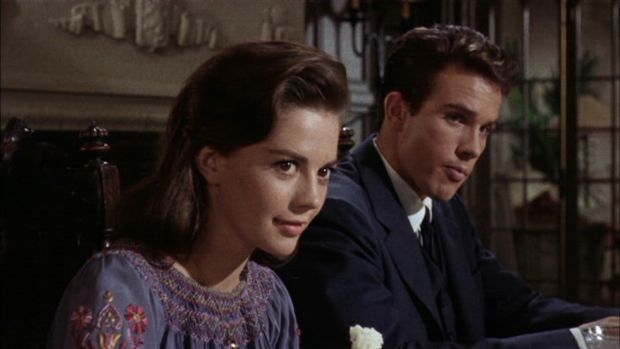
In a way, that was Kazan's talent, too — investing each scene with meaning, establishing a narrative momentum, keeping the thing moving, emotionally speaking. It's why Kazan's films are always entertaining, even when they aren't great. He developed a good eye for images, though he was rarely capable of creating passages of visual lyricism that lift the spirit. Even his great films rarely arrive at cathartic climaxes which knit the whole narrative together — one tends to remember moments between the characters rather than the whole sweep of the story.
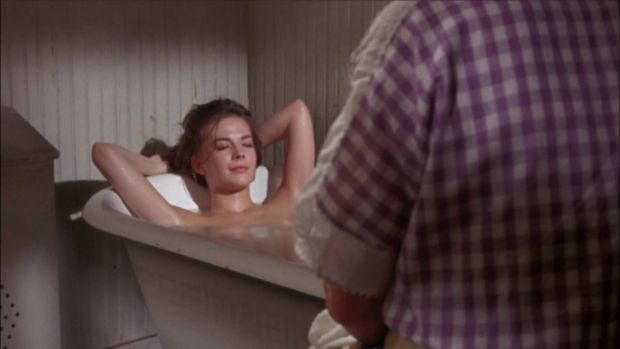
Kazan seems to see Inge's talent as limited, that of a mere storyteller, yet he admits that the last reel of Splendor In the Grass, the climax, is his favorite of all his last reels. And he's right to feel that way. Splendor In the Grass, thanks to Inge's skill as a storyteller, and with some crucial help from Wordsworth, is the most profoundly satisfying of all Kazan's films, because of that ending.
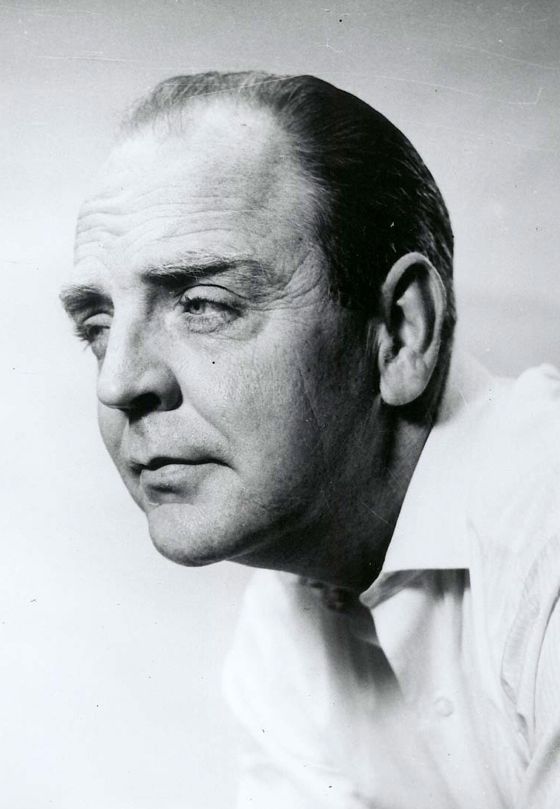
Inge (above) did not have the reputation of Tennessee Williams, who could write dazzling, unforgettable endings that packed a punch, but often in a synthetic way, relying on a great exit line, for example, which seems to say more than it really does. The ending of Kazan's film of A Streetcar Named Desire doesn't break my heart — its poetic, tragic quality feels too neat. The ending of Splendor In the Grass does break my heart. It seems far truer, though certainly less grand and eloquent, than anything Williams ever wrote.
Williams was a better writer than Inge, but Inge was a better storyteller. We don't often think of making a distinction like this with the work of good dramatists, but it's one that sometimes can be made, and it's one well worth pondering.
[Click here for some extended thoughts on the film's plot and theme.]

I could see this movie a million times and cry each time I see the movie based on so many aspects. It’s the story of innocence lost; that first young and innocent love in most young people’s lives. I had a love like the one portrayed in this move and a mother similar to the one here. She wanted me to remain chaste until my marriage and I did but I did it 4 my mother! Throughout my life, I never stopped thinking about this wonderful movie, the poem by Wadsworth and how much it all impacted on my own personal life! There were times when I felt exactly like Dena and thought I was going to lose my mind! But, alas, I didn’t! One of my all time favorites and Natalie Wood has always been #1 in my book!
Signed,
DeeDee
Yes — a really great film.